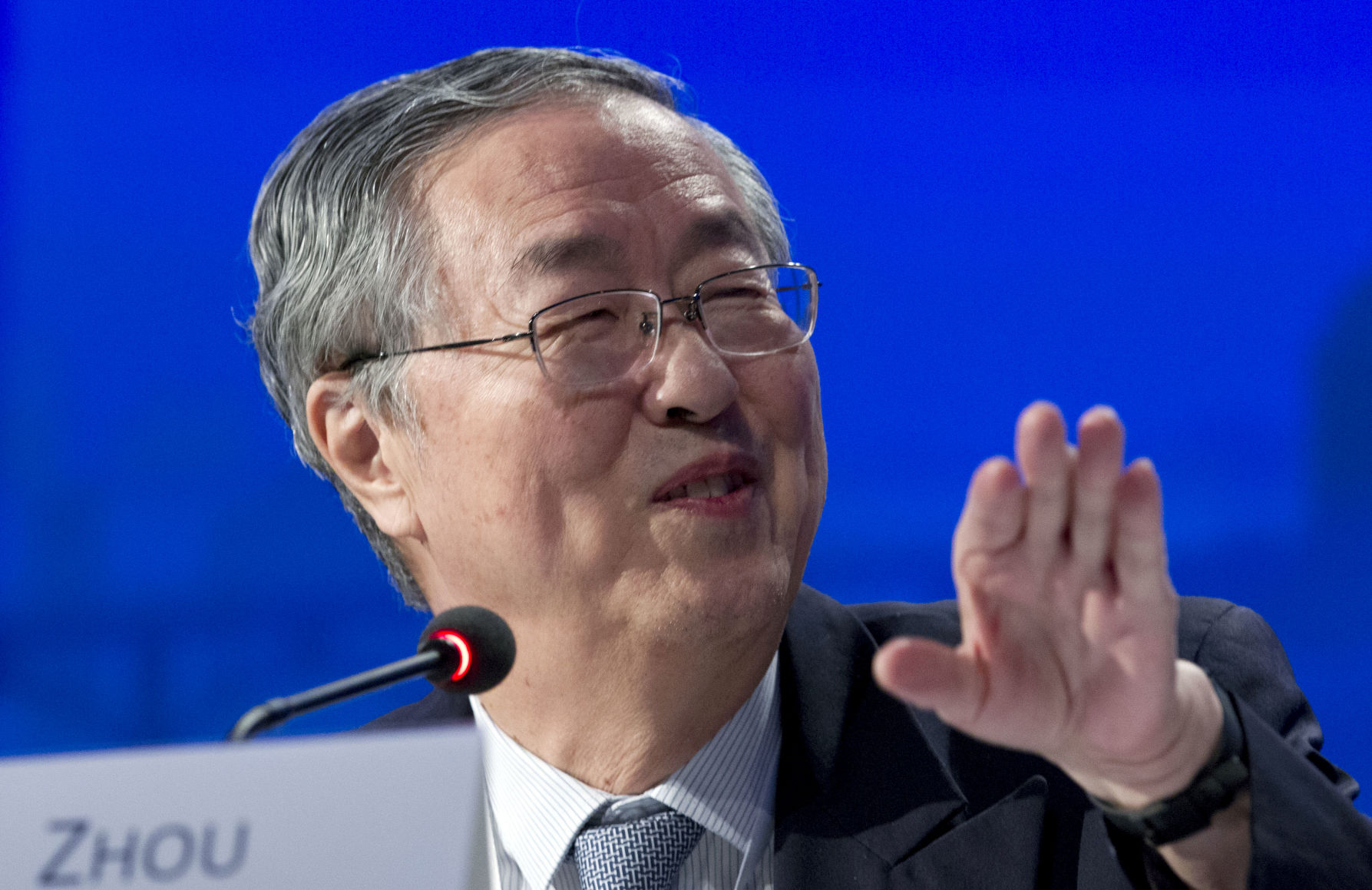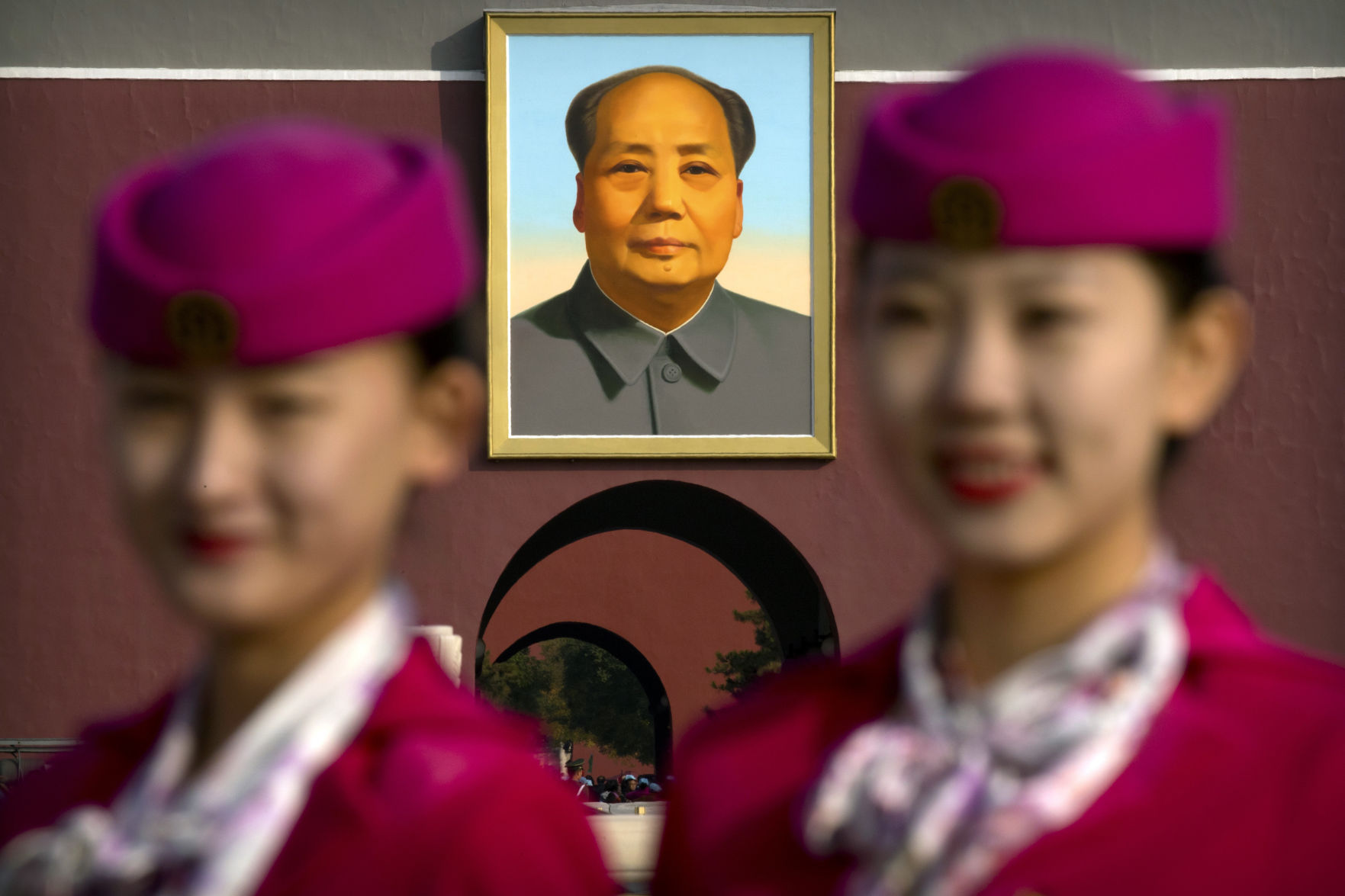BEIJING (AP) — China’s ruling Communist Party has promoted three potential successors to long-serving central bank chief Zhou Xiaochuan, setting up a possible handover as Beijing tries to rein in surging debt and financial risks. The three officials were among
BEIJING (AP) — China’s ruling Communist Party has promoted three potential successors to long-serving central bank chief Zhou Xiaochuan, setting up a possible handover as Beijing tries to rein in surging debt and financial risks.
The three officials were among 204 people named to the party’s Central Committee as the party closed a twice-a-decade congress.
Zhou has led the People’s Bank of China since 2002 and at 69 is well beyond standard retirement age. He stayed on during the last leadership change in 2012 in what was seen as an effort to project stability as a new generation of leaders under President Xi Jinping took power.
The newly promoted officials were bank regulator Guo Shuqing, securities regulator Liu Shiyu and Jiang Chaoliang, party secretary of populous Hubei province, which surrounds Beijing.
Private sector analysts say all three have the experience to succeed Zhou.
Guo would be “well received” by foreign investors, who know his views, said Citigroup economists in a report. It might take longer to “fully digest” Jiang’s thinking on monetary policy.
The Citigroup analysts noted Jiang’s financial experience dates to the 1997 Asian financial crisis, when he helped to shut down a failed government-run investment trust in the southern province of Guangdong.
The next central bank governor will play a key role in efforts to cool surging bank lending that has propelled debt to the equivalent of 270 percent of annual economic output.
Zhou warned last week that China’s relatively robust economic growth could face dangers from an excessive debt and financial risk.
Speaking at the party congress, he warned “systemic financial risk may trigger a financial crisis.” He said that could have a “severe impact on the whole economy and employment.”
Zhou issued a similar warning about rising Chinese corporate debt at the Oct. 15 meeting of the International Monetary Fund.
The central bank is part of China’s finance ministry. Official tradition suggests if a new bank governor is appointed, it would happen after the Chinese legislature appoints a new finance minister in March.




